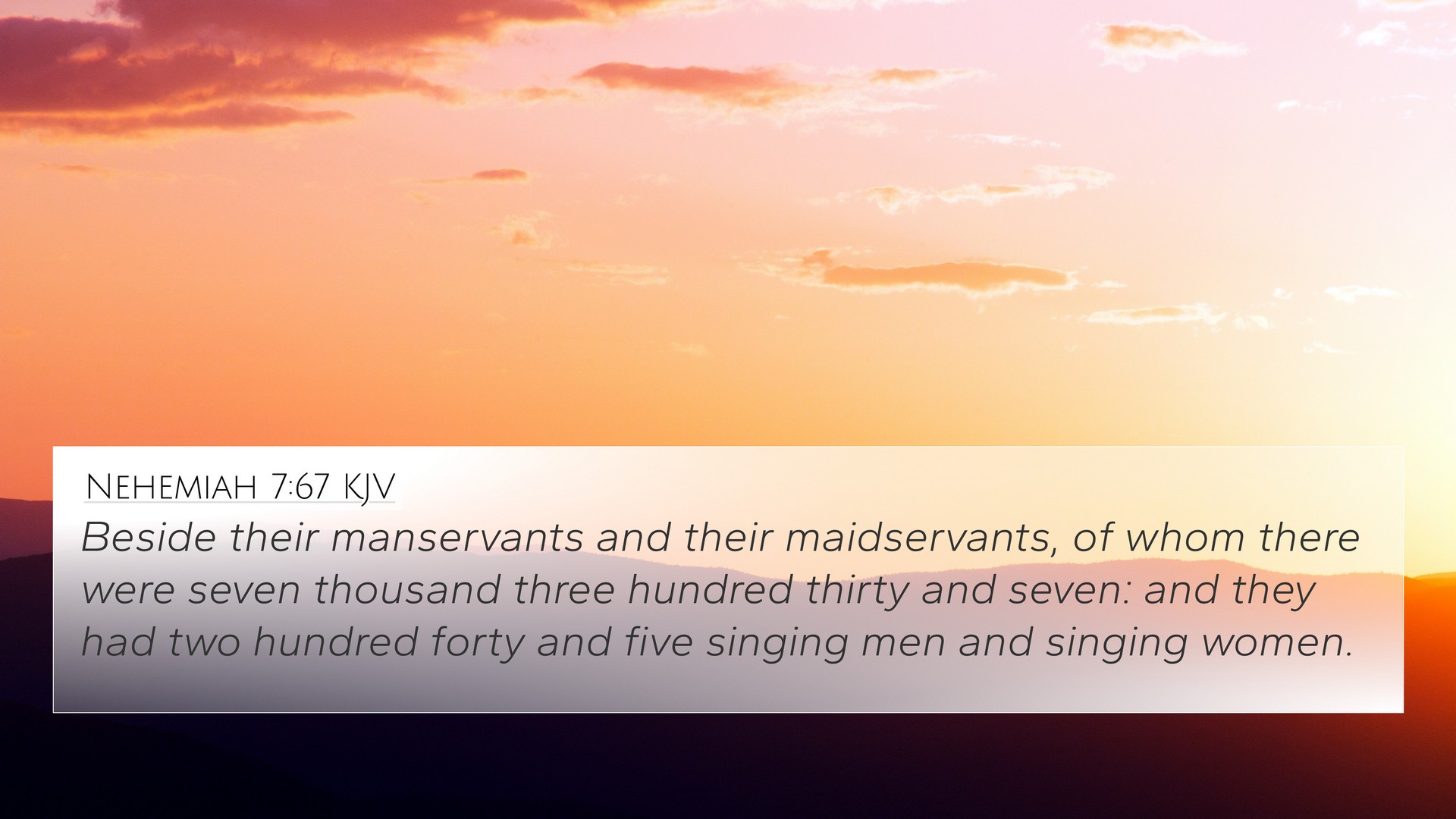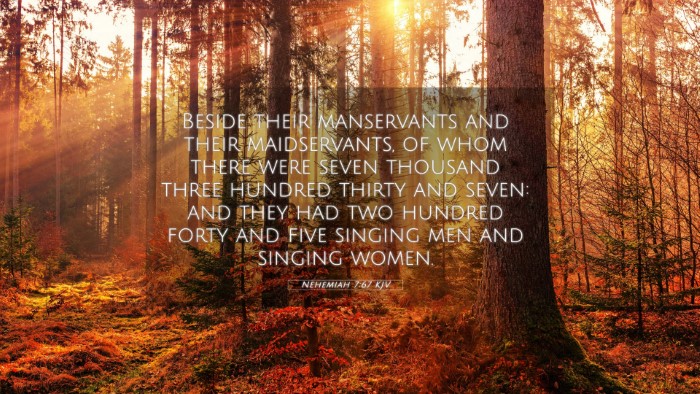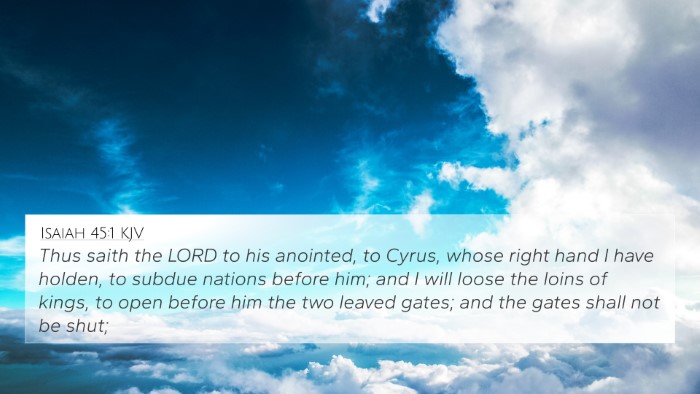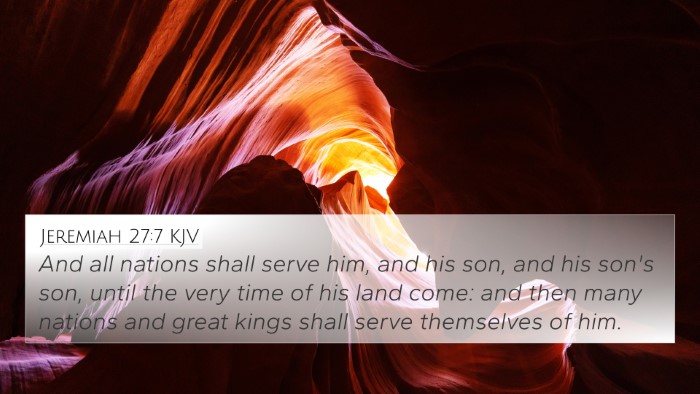Understanding Nehemiah 7:67
Bible Verse: Nehemiah 7:67
Nehemiah 7:67 states: "The total number of the congregation was forty-two thousand three hundred sixty." In this verse, the remnant of Israel that returned from Babylonian exile is being counted, emphasizing both the physical return to their homeland and the spiritual restoration of God's people.
Contextual Background
This verse occurs in the context of Nehemiah’s efforts to rebuild the walls of Jerusalem and restore the community after their return from exile. The preceding verses provide a genealogy of those who returned, illustrating the continuity of God's covenant people. This genealogical record is significant as it conveys the identity and heritage of the Israelites, reinforcing their unique relationship with God.
Commentary Insights
Matthew Henry's Commentary
Matthew Henry highlights that the census serves to remind the Israelites of their origins and the importance of their heritage. He notes that despite their small number, the faithful remnant was privileged to return and participate in God’s restoration plan. Henry emphasizes that God preserves a remnant in every age, which may appear small but is significant in fulfilling God’s purposes.
Albert Barnes' Commentary
Albert Barnes explains that this passage reflects the organization of the community for worship and civic duties. The enumeration signifies the importance of alignment for the people in their communal responsibilities. Barnes also points out the accuracy and detail in the genealogical records, which serve as a testament to God’s faithfulness and His covenant promises, linking the past with the present and future aspirations of the family of Israel.
Adam Clarke's Commentary
Adam Clarke elaborates on the socio-political implications of this verse, stating that the re-establishment of the temple and the city walls required a structured society. Clarke notes that the numbers recorded serve not only as a historical fact but as an encouragement for those who returned, reminding them that they are a part of a larger narrative of divine providence and restoration. He also suggests that this remnant would serve as a foundation for the future of Israel.
Thematic Connections
This verse can be understood through several themes that run throughout the Bible. The act of counting the people can be paralleled with various instances across Scripture where God preserves and returns His people, reaffirming His promises. The significance of genealogy, community, and restoration can be explored further in connecting this verse with others.
Related Bible Verses
- Ezra 2:64-65: A similar census is recorded when the first wave of exiles returns to Jerusalem, reaffirming the continuity of God’s people.
- Nehemiah 11:1: This verse discusses the selection of leaders and people who would dwell in Jerusalem, emphasizing community building.
- Jeremiah 30:3: A prophecy about the restoration of Israel, which provides a larger context of hope and restoration.
- Isaiah 44:28: God’s declaration about Cyrus as a shepherd who will fulfill God’s purpose, linking to the return from exile.
- Matthew 1:12: The genealogy in the New Testament reflects on God's faithful continuation of His covenant with Israel.
- Luke 2:1-5: The census of Caesar parallels Nehemiah’s count, showing divine orchestration in the fulfillment of God’s promise through history.
- Romans 9:27: Paul references the remnant of Israel, relating the Old Testament context to New Testament theology about God preserving His people.
Cross-Referencing Biblical Texts
Cross-referencing these scriptures provides a deeper understanding of Nehemiah 7:67 in relation to other Biblical themes. By utilizing tools for Bible cross-referencing, one can explore how God's commitment to His people is a recurring theme seen through the testimonies of both the Old and New Testaments.
Cross-Referencing Tools and Methods
- Bible Concordance: Use a concordance to find related topics and themes across different books of the Bible.
- Bible Cross-Reference Guide: A guide can help connect verses that may not be immediately visible.
- Bible Cross-Reference System: Implement a systematic approach to identify how verses interact with one another.
- Comprehensive Bible Cross-Reference Materials: Look for compiled works that outline the thematic relations among scriptures.
- Cross-Referencing Bible Study Methods: Employ methods that facilitate finding links between texts during Bible study sessions or sermons.
Conclusion
Nehemiah 7:67 stands as a powerful reminder of God’s enduring promise to His people, represented here through the faithful remnant returning from exile. This verse is enriched by understanding its context and significance through various biblical cross-references. By emphasizing the connections between Bible verses, we can appreciate the thematic coherence throughout Scripture and deepen our understanding of God’s unwavering commitment to His covenant with Israel.





